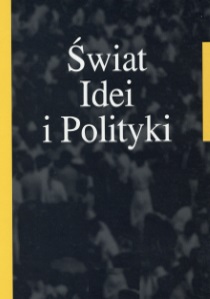Perception of Democracy in the Turkish Political Culture
DOI:
https://doi.org/10.34767/SIIP.2020.19.11Keywords:
political culture, democracy, mass, democratic institutions, democratizationAbstract
The subject of this article is political culture and its relationship with democracy. The article is focused mainly on Turkish political culture and democratic practices. It is clear that the political system is directly connected with the political culture of society. But how could we distinguish political culture from other things or do we even have to? The purpose of this article is to present and evaluate the main role of political culture, which affects levels of tolerance, interpersonal trust, etc., as well as the adaption of democratic institutions to the current system. The main problems of Turkish political life are discussed in the article with the perspective of the relationship between political culture and democracy. The aim of this article is to present concepts of cultural orientations, the reflection of economic and political factors, social structures, as well as complex and unclear relations between them, which are simultaneously linked to a stable democracy. Therefore, it can be observed that stable democracy is not a coincidence but a result of all mentioned factors.
References
Almond, G.A. (1956). Comparative Political Systems. The Journal of Politics, 18(3),391–409. https://doi.org/10.2307/2127255.
Almond, G.A., & Verba, S. (1989). The Civic Culture: Political Attitudes and Democracy in Five Nations. Newbury Park, California: Sage Publications.
Dahl, R.A. (1998). On Democracy. New Heaven: Yale Univercity Press.
Duverger, M. (2019). Siyaset Sosyolojisi (Şirin Tekeli, Trans.). İstanbul: Varlık.
Görmez, K. (1999). Türkiye’de Siyasal Yapı ve Siyasal Kültür. Gazi Üniversitesi İktisadi ve İdari Bilimler Fakültesi Dergisi, 1(1), 13–18.
Günlü, Ramazan. (2016). Türkiye’de Siyasal Kültür Kavramlaştırmasına İlişkin Yöntemsel Müdahale. Eğitim Bilim Toplum Dergisi, 14(55), 10–60.
Heper, M., & Çınar, M. (1996). Parliamentary Government with a Strong President: The Post-1989 Turkish Experience. Political Science Quarterly, 111(3), 483–503. https://doi.org/10.2307/2151972.
Inglehart, R. (1988). The Renaissance of Political Culture. The American Political Science Review, 82(4), 1203–1230. https://doi.org/10.2307/1961756.
Kalaycıoğlu, Ersin. (2008). Türkiye’de Demokrasi’nin Pekişmesi: Bir Siyasal Kültür Sorunu (Democratic Consolidation in Turkey: A Problem of Political Culture). Prof. Dr. Ergun Özbudun’a Armağan (Essays in Honor of Ergun Özbudun), Yetkin Yayınları, 247–277.
Karpat, Kemal H. (1970). The Military and Politics in Turkey, 1960–64: A SocioCultural Analysis of a Revolution. The American Historical Review, 75(6), 1654–1683. https://doi.org/10.2307/1850760.
Karpat, Kemal Haşim. (2014). Türk Siyasi Tarihi: Siyasal Sistemin Evrimi (Z. Elitez, Ceren, Trans.) İstanbul: Timaş Yayınları.
Lehman, E.W. (1972). On the Concept of Political Culture: A Theoretical Reassessment. Social Forces, 50(3), 361–370. https://doi.org/10.1093/sf/50.3.361.
Lijphart, A. (1969). Consociational Democracy. World Politics, 21(2), 207–225. https://doi.org/10.2307/2009820.
Lipset, S.M. (1960). Political man: The Social Bases of Politics. Garden City, N.Y: Doubleday. http://archive.org/details/politicalmansoci00inlips.
Özer, İ. (1996). Siyasal Kültür, Demokrasi ve Demokratik Değerler. Hacettepe Üniversitesi İktisadi ve İdari Bilimler Fakültesi Dergisi, 14(1), 71–98.
Prager, J. (1981). Moral Integration and Political Inclusion: A Comparison of Durkheim’s and Weber’s Theories of Democracy. Social Forces, 59(4), 918–950. https://doi.org/10.2307/2577974.
Tessler, M., & Altinoglu, E. (2004). Political Culture in Turkey: Connections among Attitudes toward Democracy, the Military and Islam. Democratization, 11(1), 21–50. https://doi.org/10.1080/13510340412331294122.
Vergin, N. (2000). Din, Toplum ve Siyasal System. İstanbul: Bağlam yayınları.
Williams, R. (1983). Culture and Society. NY: Colombia University Press.
Yücekök, A. (1969). Toplumsal Üst Yapı Olarak Siyasal Davranış. Ankara Üniversitesi SBF Dergisi, 24(04). https://doi.org/10.1501/SBFder_0000001177.
Downloads
Published
Issue
Section
License
Copyright (c) 2020 Świat Idei i Polityki

This work is licensed under a Creative Commons Attribution 4.0 International License.

